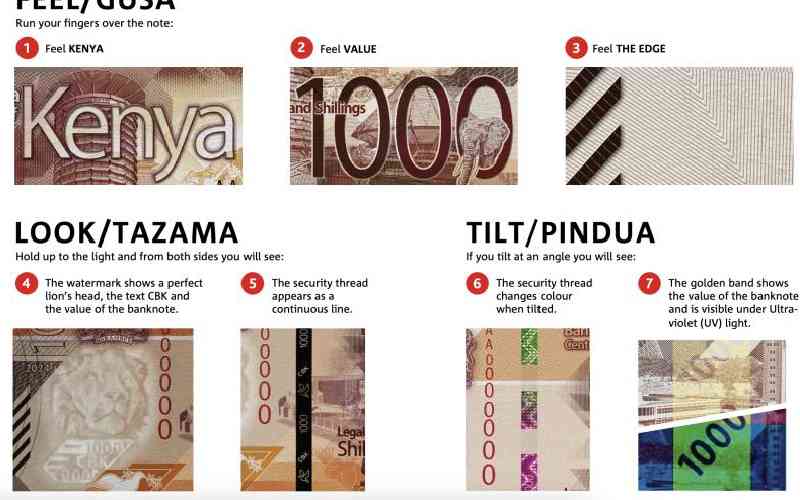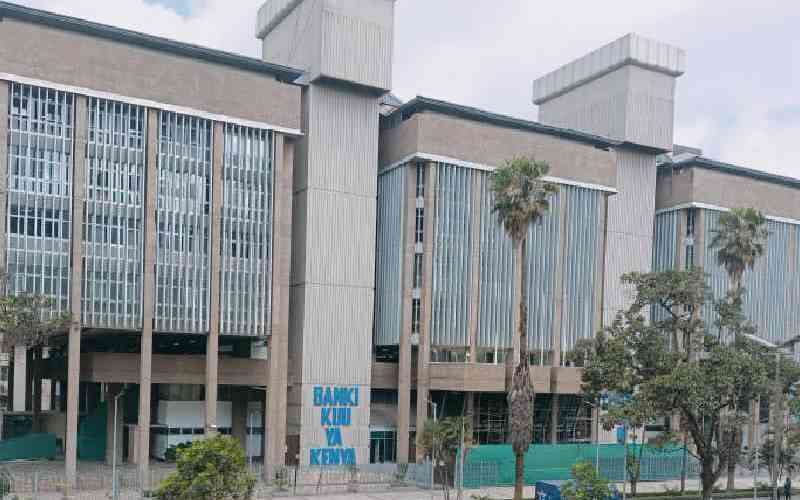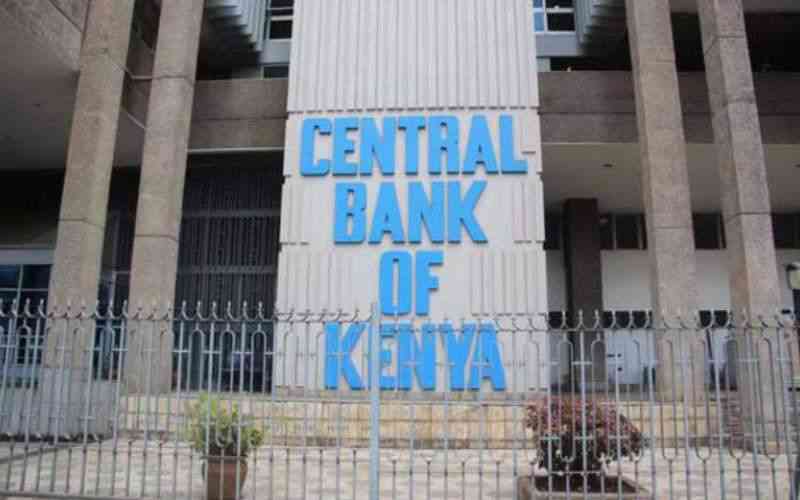Central Bank Rocked by Sh14.5 Billion Currency Printing Tender Mystery!
)
Senator Andrew Omtatah has initiated a robust call for scrutiny into a Sh 14.5 billion national currency printing contract awarded by the Central Bank of Kenya (CBK) to the German firm Giesecke+Devrient (G+D).The move comes after the Auditor-General flagged significant constitutional and procurement irregularities surrounding the deal, pushing the matter into the political spotlight.
The contract, structured as a five-year arrangement, involves the printing of approximately 2.04 billion banknotes, expected to bear a 2024 print date and incorporate updated security features. Public reports detail the immense scale of the undertaking, covering 460 million Sh50 notes, 690 million Sh100 notes, 260 million Sh200 notes, 170 million Sh500 notes, and 460 million Sh1,000 notes, accumulating to a staggering total face value of Sh689 billion. This procurement follows the closure of British firm De La Rue's local operations in 2023, which had historically printed Kenya’s currency for decades.

Photo Credit: Google
The Auditor-General's report brought to light numerous procedural flaws in CBK's handling of the tender. Crucially, the bank failed to establish a special procurement committee, a mandatory requirement for classified contracts under the Public Procurement Regulations of 2020. Furthermore, the audit noted an absence of supplier vetting and proper market assessment, casting doubt on whether value for money was achieved. Oversight mechanisms were also found wanting, as the Public Procurement Regulatory Authority (PPRA)did not monitor the transaction, despite legal mandates for its Director-General to do so.
Internal procedures were similarly ignored, with CBK neglecting to prepare the necessary documentation justifying the classified nature of the tender, failing to submit procurement reports to the Treasury or regulators, and omitting details on how the supplier was selected. The Auditor-General even questioned the legitimacy of classifying the deal under the Public Procurement and Asset Disposal Act, raising suspicions that secrecy might have been employed to circumvent open competition. While the audit did not condemn CBK's overall governance, it highlighted this specific contract as a "serious exception."
Responding to these revelations, Senator Omtatah has posed a series of critical questions to the Senate’s Finance and Budget Committee. He seeks confirmation on whether the Treasury Cabinet Secretary’s approval was secured for treating the contract as classified and if it appeared on the official list of classified procurements. The Senator also demands clarity on CBK's adherence to Regulation 84 conditions, including the drawing up of itemised costs, documentation of the chosen procurement method, and the appointment of the requisite special committee.
Moreover, he has inquired whether CBK’s accounting officer submitted the legally mandated reports to both the Treasury and the PPRA. Challenging the bank’s potential misuse of Section 90(8) of the Act, Omtatah advocates for a comparative review of this contract against the 2005 tender awarded to De La Rue through competitive bidding, which reportedly saw the British firm outbid Giesecke+Devrient on cost. He insists on examining both contracts for transparency, competition, and value for money, and seeks proposals for robust measures to prevent future abuse of classified procurement and safeguard Kenya’s procurement system.
In its defence, the CBK has stated that the National Security Council, the Cabinet, and the Attorney General cleared the procurement. The bank justified the use of classified procedures by citing potential delays or a lack of printing capacity, which could have led to a critical shortage of banknotes, thereby necessitating urgency. However, Senator Omtatah maintains that a competitive process could have yielded better value for money, a claim now under the Senate’s review.

Photo Credit: The Standard
The Senate’s active involvement transforms this issue from mere audit findings into a "live political and constitutional matter." Should CBK and the Treasury fail to provide satisfactory explanations, the Senate could advocate for the contract's renegotiation, reversal, or subjecting it to legal scrutiny. The outcome of this case is expected to significantly test the strength and integrity of Kenya’s classified procurement rules, a sensitive area balancing national security with public finance. Its resolution will set a crucial precedent, either strengthening the system against potential abuse or potentially opening avenues for other public entities to misuse secrecy provisions in major contracts.
You may also like...
Haaland's UCL Rampage: Brace, Record, and X-Rated Fury Rocks European Football!

Manchester City were held to a frustrating 2-2 draw against Monaco in the Champions League, despite Erling Haaland's two...
Manchester United's Managerial Maze: Amorim on the Brink, Solskjaer's Ghost Looms

Ruben Amorim faces unprecedented pressure at Manchester United as inconsistent results and a low Premier League standing...
Real-Life Couple Justin Long & Kate Bosworth Unleash 'Coyotes' Horror Comedy, Securing UK Deal

Real-life partners Justin Long and Kate Bosworth star in the new horror comedy and survival thriller “Coyotes,” a film t...
Kenyan Star Bahati Ignites Firestorm with Provocative New 'Seti' Track!

Bahati has ended his musical hiatus with the controversial new song "Seti," featuring explicit content that deviates fro...
Global K-Pop Domination Ignored by Grammys? A Critical Look

Korean pop music has achieved global megaforce status, dominating charts and captivating millions of fans worldwide. Des...
One Direction Reunites! Global Pop Idols Confirm Massive New Project

One Direction stars Louis Tomlinson and Zayn Malik are reportedly reuniting for a Netflix road trip documentary, set to ...
Royal Arrival: Victor & Henrietta Thompson Welcome Baby Princess Zivah!

Gospel singer Victor Thompson and his wife, Henrietta, have joyfully welcomed their baby girl, Zivah Ufuoma Tamunopakiri...
Viral Sensation: M&S 'Cuddle' Jumper Takes Autumn by Storm at Just £26

Discover the M&S Textured Crew Neck Jumper, a viral sensation perfect for colder days. Praised for its luxurious feel, v...



